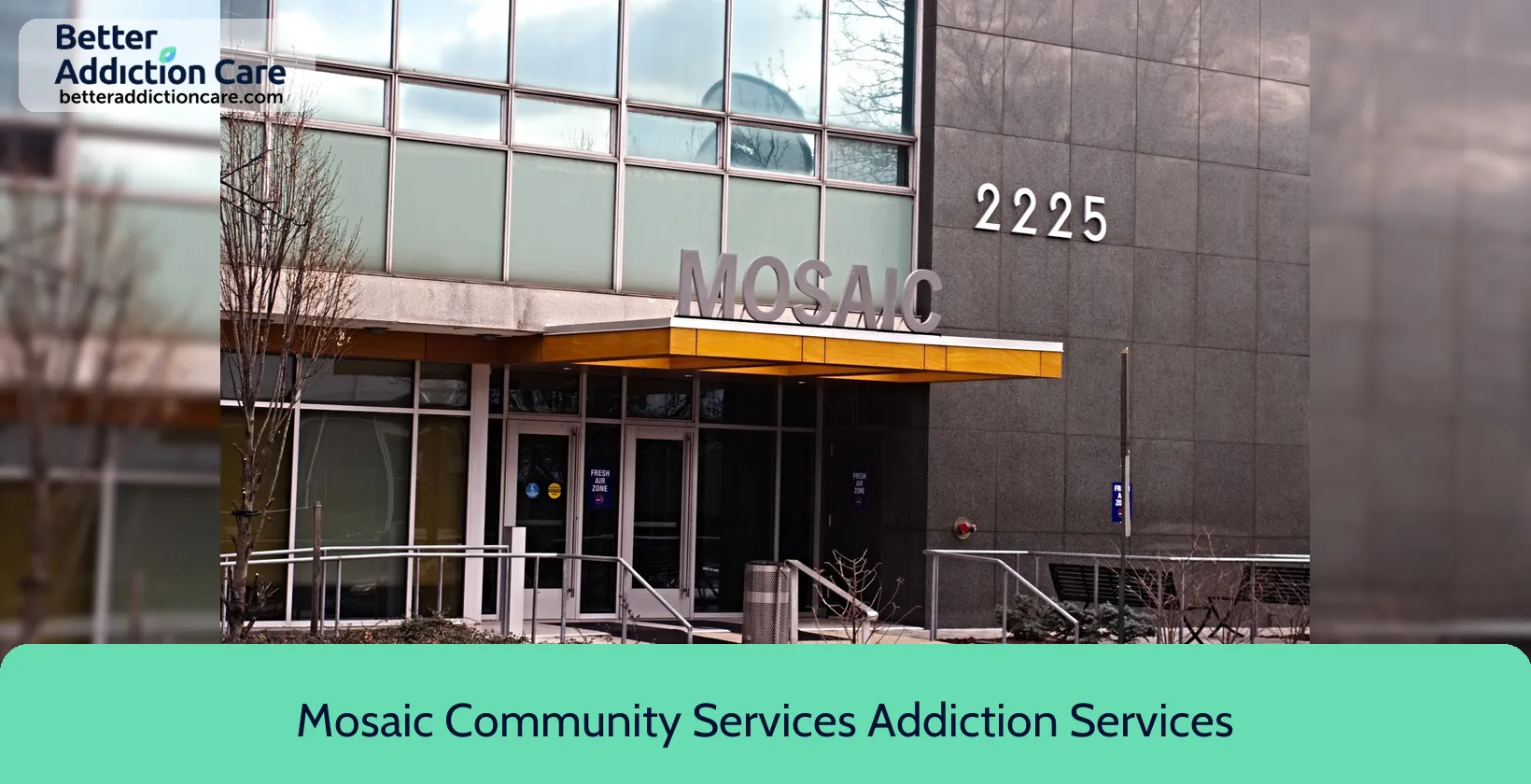Mosaic Community Services Psychiatric Rehabilitation

Overview
Mosaic Community Services Psychiatric Rehabilitation is a substance abuse treatment center for people seeking treatment near Baltimore County. As part of their treatment modalities for recovery, Mosaic Community Services Psychiatric Rehabilitation provides cognitive behavioral therapy, telemedicine/telehealth therapy, and substance use disorder counseling during treatment. Mosaic Community Services Psychiatric Rehabilitation is located in Lutherville Timonium, Maryland, accepting cash or self-payment for treatment.
Mosaic Community Services Psychiatric Rehabilitation at a Glance
Payment Options
- Cash or self-payment
- Medicaid
- Medicare
- Private health insurance
Assessments
- Screening for tobacco use
- Comprehensive mental health assessment
- Outreach to persons in the community
- Screening for mental disorders
- Screening for substance use
Age Groups
- Children/adolescents
Ancillary Services
- Case management service
- Mental health services
Highlights About Mosaic Community Services Psychiatric Rehabilitation
6.71/10
With an overall rating of 6.71/10, this facility has following balanced range of services. Alcohol Rehabilitation: 8.00/10, Drug Rehab and Detox: 6.00/10, Insurance and Payments: 6.00/10, Treatment Options: 6.85/10.-
Alcohol Rehabilitation 8.00
-
Treatment Options 6.85
-
Drug Rehab and Detox 6.00
-
Insurance and Payments 6.00
Accreditations
State mental health department:
State mental health department accreditation refers to the process of evaluating and certifying the quality and standards of a state's mental health department, ensuring that it provides high-quality services and meets specific criteria for mental health care. The accreditation process is performed by a third-party organization and helps to improve the overall care and treatment of individuals with mental health conditions.
Commission on Accreditation of Rehabilitation Facilities (CARF):

CARF accreditation is a prestigious recognition for rehabilitation and human service organizations. It signifies that an organization meets high-quality standards and is committed to providing top-level care. CARF conducts rigorous evaluations to ensure compliance, enhancing an organization's credibility and reassuring clients and funders of exceptional service quality. This accreditation promotes excellence and continual improvement in the rehabilitation and human services field.
Treatment At Mosaic Community Services Psychiatric Rehabilitation
Treatment Conditions
- Alcoholism
- Mental health treatment
- Substance use treatment
- Co-occurring Disorders
Care Levels
- Outpatient
- Regular outpatient treatment
Treatment Modalities
- Cognitive behavioral therapy
- Telemedicine/telehealth therapy
- Substance use disorder counseling
- Trauma-related counseling
- Family counseling
Ancillary Services
Languages
- Sign language services for the deaf and hard of hearing
Special Programs
- Clients who have experienced trauma

Additional Locations
Contact Information
Read our Most Recent Article About Drug Addiction
DISCLAIMER: The facility name, logo and brand are the property and registered trademarks of Mosaic Community Services Psychiatric Rehabilitation, and are being used for identification and informational purposes only. Use of these names, logos and brands shall not imply endorsement. BetterAddictionCare.com is not affiliated with or sponsored by Mosaic Community Services Psychiatric Rehabilitation.










